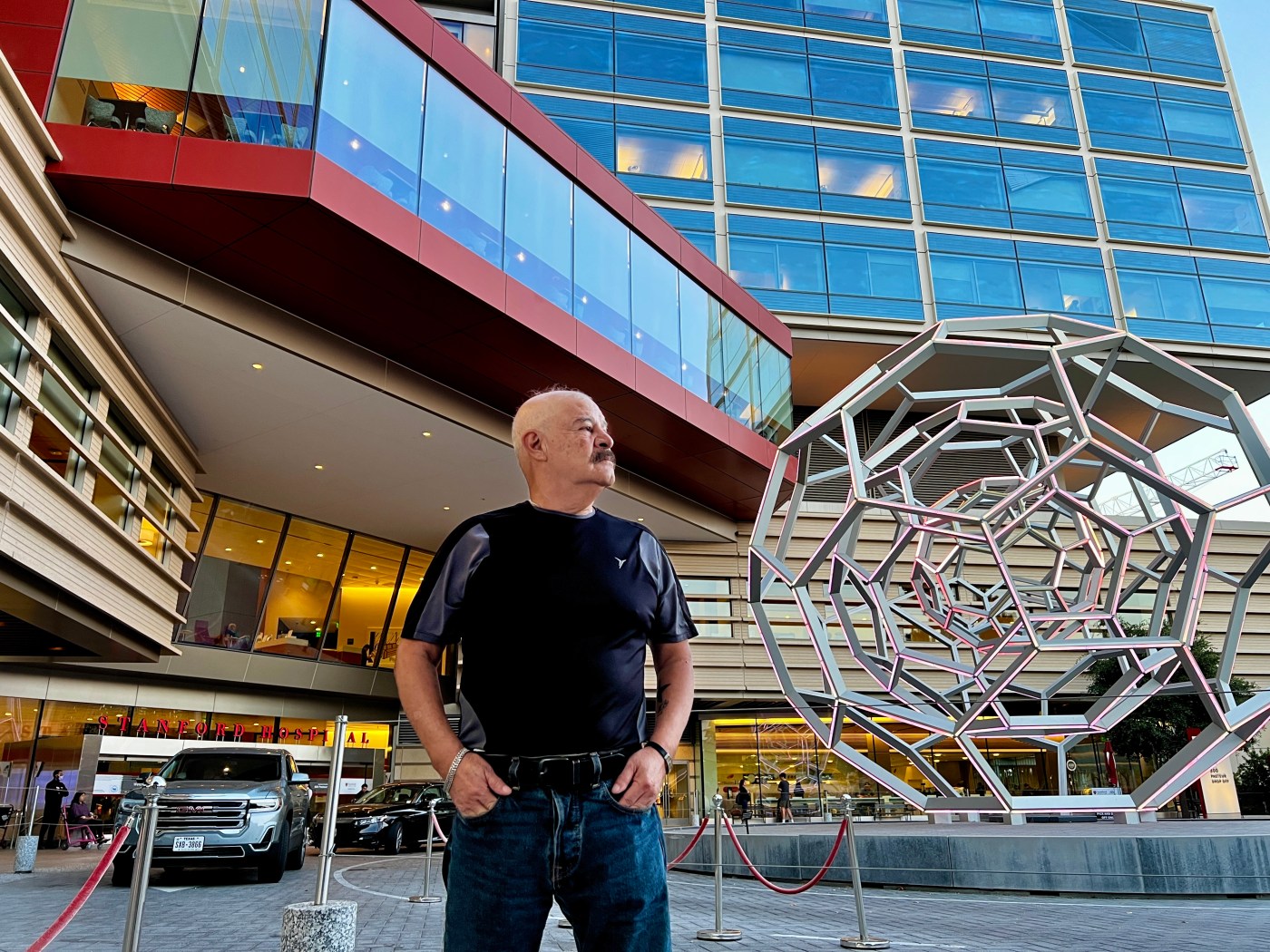
For days after the East Palo Alto housekeeper with an expired visa was moved from Stanford Medical Center into ICE detention in Bakersfield, she could barely speak to her family trying to connect with her through FaceTime phone calls.
Aleyda “Yeny” Rodriguez only mumbled and relatives said they were certain she remained in some kind of shock since she fainted while being arrested by ICE agents Aug. 25 on her way to work. At the Bakersfield Mesa Verde facility, she refused visits from her father and son-in-law.
“She did not trust anyone,” said Issy Tovar, Rodriguez’s cousin. “When they would say they’re calling you, they’re here to visit, she just didn’t believe anybody.”
But now, after a week in the detention center’s medical unit and with the help of a compassionate fellow detainee, her health has improved and she is awaiting a deportation hearing, Tovar said. A judge will decide whether she can voluntarily deport, along with her Mexican-born 13-year-old daughter, to her father’s home in Guadalajara — a plan she had in place even before she was arrested, Tovar said.
At the same time, a group of Stanford hospital workers and activists, upset at how her family and her lawyer were banned from her hospital room during most of her five-day stay, are asking hospital executives to change how it interacts with ICE in the future. As ICE arrests increase under the Trump Administration’s crackdown of illegal immigration, hospitals around the country are grappling with the same issues, including whether armed agents can be banned from patient treatment areas.
“They are common sense changes,” said Michelle de Blank, the family lawyer who was denied access to Rodriguez while she was a patient. “What happened was not okay for her health, legally, anything.”
Aleyda “Yeny” Rodriguez, in a photo from her family’s gofundme page, remains at Stanford Medical Center with ICE posted outside her door after being arrested in East Palo Alto with an expired visa. (Courtesy of Rodriguez family)
Rodriguez’s arrest — two years after her 10-year tourist visa expired — drew attention to what appeared to be the random nature in which agents from U.S. Customs and Immigration Enforcement were apprehending immigrants in the U.S. without proper documentation. Top ICE officials initially said their priority was to target immigrants with violent criminal records. A recent statement the White House said that “while anyone in the country illegally is eligible for deportation, the priority remains criminal illegals who terrorize American communities.”
But President Trump had also promised to deport millions of immigrants — far outnumbering those with criminal records. And Rodriguez’s family has said their only crime was not renewing their visas. Her husband, Oscar Flores, works as a gardener with her brother in East Palo Alto. Her 29-year-old nephew, Dario Jasso, who works in construction and was arrested the same morning, didn’t have any criminal record, either, the family has said.
Rodriguez’s father, Armando Garcia Rodriguez, who was banned from his daughter’s hospital room the last four days of her stay, told the Mercury News he had traveled from Mexico a few weeks earlier on a tourist visa intending to take his daughter and granddaughter back to Mexico in the ensuing months. His daughter who worked as a housekeeper full time, he said, “was tired.”
A family friend, Carol Zink, said it’s long overdue that Congress come up with a legal path for citizenship for immigrants who “have not not been involved with the law in any way other than maybe a parking ticket or a speeding ticket. They do really necessary jobs that, for the most part, native born folks are not interested in doing.”
Without comprehensive immigration reform, even Tovar, who was born in the U.S. and works as an interpreter at UCSF Medical Center, said she’s afraid ICE agents can randomly detain her because she has dark skin.
“I can be walking down the street talking with my mother, who is a citizen as well,” she said. “I can be talking in Spanish with my mother, and I can be stopped. I can’t put it in just a few words. I’m very sad about this whole situation.”
Rodriguez was dropping off her husband at her brother’s house when she was arrested in the street. Her husband ran to safety in a neighbor’s yard — private property that’s off limits to ICE agents without a warrant. As ICE agents handcuffed her and carried her to their van, she passed out. They took her to Stanford where they guarded her room for five days.
Her primary care physician, hired that week by her family to check on her, said she was catatonic hours before Stanford released her. A group of Stanford health workers and other local activists protested her release and are calling for numerous changes, including prohibiting agents from entering treatment areas and relegating them to public waiting rooms instead.
Stanford said in a statement Wednesday only that “Stanford Health Care’s protocols are in place to ensure we deliver the highest quality clinical care to all our patients and comply with federal law enforcement directives.”
ICE didn’t respond to questions about Rodriguez’s condition and care or next steps in her deportation.
After Rodriguez was discharged from Stanford and sent to Bakersfield, a fellow detainee with a “kind heart” gained the trust of Rodriguez, Tovar said, helping her bathe and ultimately connect with her family.
“I would say that she is more aware and understanding of her situation,” Tovar said, “and is feeling less frightened.”